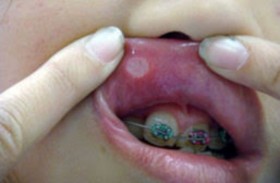info@dentallifeline.com
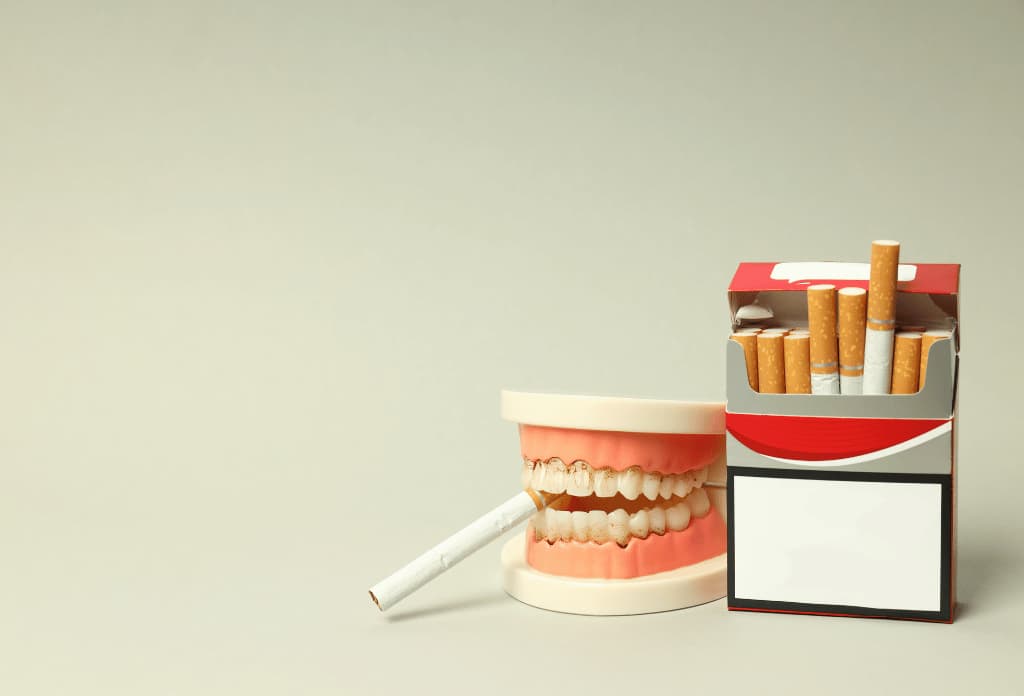 27 Sep 2023
27 Sep 2023
How Smoking Affects Your Oral Health: Risks and Quitting Strategies
Introduction
Smoking is a well-known health hazard, linked to various serious illnesses such as lung cancer and heart disease. However, its detrimental effects are not limited to the lungs and heart; smoking also wreaks havoc on your oral health. In this blog post, we will explore how smoking impacts your mouth, teeth, and gums, and we’ll discuss effective strategies to quit this harmful habit.
The Impact of Smoking on Oral Health
- Stained Teeth: Smoking is a leading cause of tooth discoloration. The tar and nicotine in tobacco can result in unsightly yellow or brown stains on your teeth, which can be challenging to remove even with professional teeth whitening.
- Bad Breath: Smoking leaves a distinct and unpleasant odor in your mouth. It can lead to chronic bad breath, which can be socially embarrassing.
- Increased Risk of Gum Disease: Smoking weakens your immune system and reduces blood flow to the gums. As a result, smokers are at a significantly higher risk of developing gum disease, including periodontitis. This can lead to tooth loss and other serious oral health issues.
- Tooth Decay: Smoking can cause a decrease in saliva production, which is essential for neutralizing acids and protecting teeth from decay. This, coupled with poor oral hygiene practices often associated with smoking, increases the risk of cavities.
- Oral Cancer: Perhaps the most alarming consequence of smoking is the increased risk of oral cancer. Smokers are at a much higher risk of developing cancer of the mouth, lips, tongue, and throat. Oral cancer can be life-threatening and may require extensive treatment.
- Delayed Healing: Smokers may experience slower healing after dental procedures, extractions, or oral surgeries. This is because smoking restricts blood flow, which is essential for the healing process.
- Tooth Loss: The combination of gum disease, tooth decay, and delayed healing can ultimately lead to tooth loss in smokers. Tooth loss can have a profound impact on one’s oral health and quality of life.
Quitting Smoking: Strategies for Success
Quitting smoking is one of the best decisions you can make for your oral health and overall well-being. Here are some strategies to help you kick the habit:
- Seek Support: Talk to your healthcare provider, dentist, or a smoking cessation counselor for guidance and support.
- Nicotine Replacement Therapy (NRT): Consider using NRT products such as nicotine gum, patches, or lozenges to help manage cravings.
- Prescription Medications: Some prescription medications, such as varenicline and bupropion, can assist with smoking cessation. Consult a healthcare professional to see if they are suitable for you.
- Behavioral Therapy: Cognitive-behavioral therapy and support groups can provide valuable tools and encouragement to quit smoking.
- Set a Quit Date: Choose a specific date to quit smoking and stick to it. Mark it on your calendar as a significant milestone.
- Identify Triggers: Recognize the situations or emotions that trigger your smoking habit and find healthier alternatives to cope with them.
- Stay Active: Regular physical activity can help reduce nicotine cravings and improve your overall health.
Conclusion
Smoking poses a grave threat to your oral health, increasing the risk of tooth decay, gum disease, oral cancer, and more. Quitting smoking is a challenging but essential step toward preserving your teeth and gums. If you’re a smoker, don’t wait to take action. Seek support and adopt strategies to quit smoking, and consult with your dentist to address any oral health issues that may have arisen due to smoking. Your smile and overall health will thank you for it.
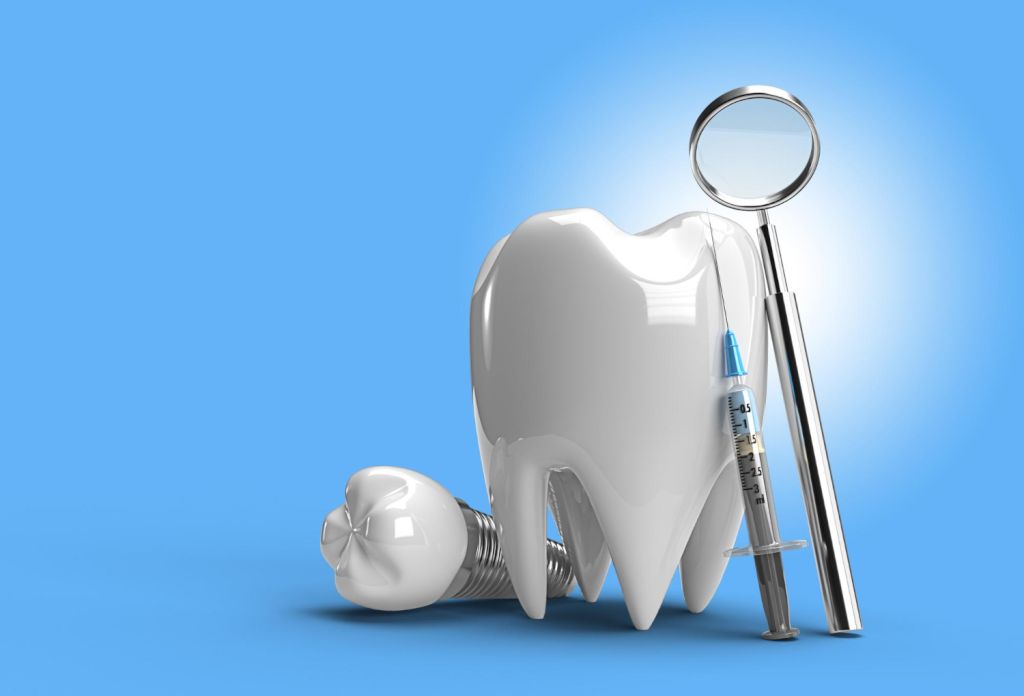 14 Sep 2023
14 Sep 2023
Dental Implants
Are medical devices surgically implanted into the jaw to restore a person’s ability to chew or their appearance. They provide support for artificial (fake) teeth, such as crowns, bridges, or dentures.
Background
When a tooth is lost due to injury or disease, a person can experience complications such as rapid bone loss, defective speech, or changes to chewing patterns that result in discomfort.
Replacing a lost tooth with a dental implant can significantly improve the patient’s quality of life and health.
The dental implant body is surgically inserted in the jawbone in place of the tooth’s.

Benefits of Dental Implant Systems:
- Restores the ability to chew
- Restores cosmetic appearance
- Helps keep the jawbone from shrinking due to bone loss
- Preserves the health of the surrounding bone and gums
- Helps keep adjacent (nearby) teeth stable Improves quality of life
Implants have several advantages over dentures, which are removable artificial teeth:-
- are more natural and comfortable
- have a higher success rate
- improve chewing function
- lead to a lower risk of cavities developing in nearby teeth
- lead to better maintenance of bone at the site of the lost tooth
- cause decreased sensitivity in nearby teeth do not need to be taken out and cleaned every night.
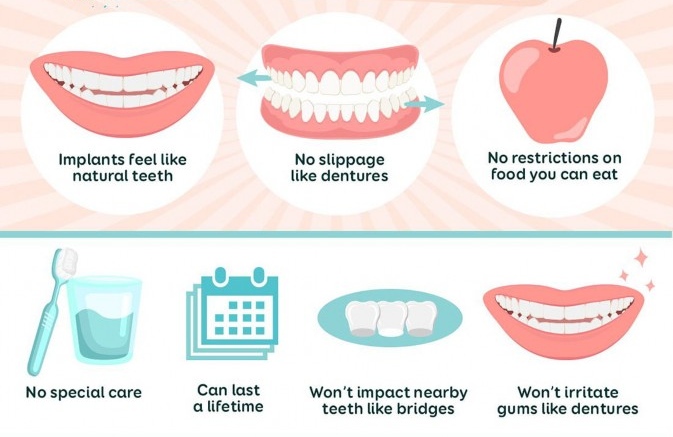
Recommendations for Patients
Before choosing dental implants, talk to your dental provider about the potential benefits and risks, and whether you are a candidate for the procedure.
Things to consider:
- Your overall health is an important factor in determining whether you are a good candidate for dental implants, how long it will take to heal, and how long the implant may stay in place.
- Ask your dental provider what brand and model of dental implant system is being used and keep this information for your
- Smoking may affect the healing process and decrease the long-term success of the implant.
After the dental implant procedure:
- Carefully follow the oral hygiene instructions given to you by your dental Regularly cleaning the implant and surrounding teeth is very important for long-term success of the implant.
- Schedule regular visits with your dental
If your implant feels loose or painful, tell your dental provider right away.
Safety
According to the American Academy of Implant Dentistry, around 3 million people in the United States have dental implants, and this number increases by about 500,000 every year. Dental implant surgery is safe when a qualified and experienced surgeon or dentist performs it. It is also the only dental restoration option that maintains the health of the person’s jawbone and stimulates its growth.
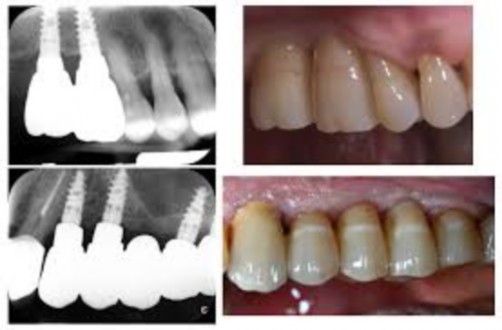
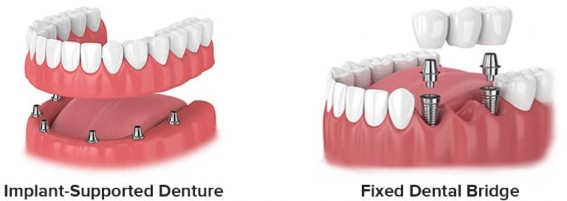
An implant-supported denture is an oral appliance that replaces several teeth at once.
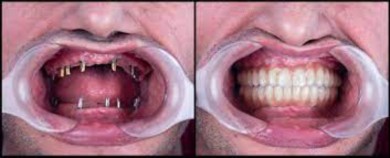
It’s similar to a traditional denture. But instead of resting on top of your gums, an implant-supported denture attaches directly to your jawbone using dental implants.
Removable implant-supported dentures
This type of denture “snaps on” to dental implants in your jawbone. It stays securely in place until you’re ready to remove it. With this option, you can take your dentures out every day for easy cleaning.
Fixed implant-supported dentures
A fixed denture — sometimes called a hybrid denture — attaches permanently to dental implants in your jawbone. You can’t remove it at home, but your dentist can remove it for maintenance when necessary.
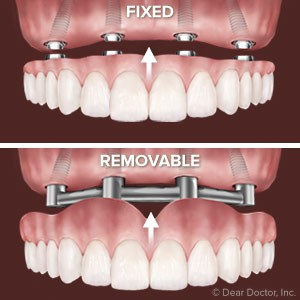
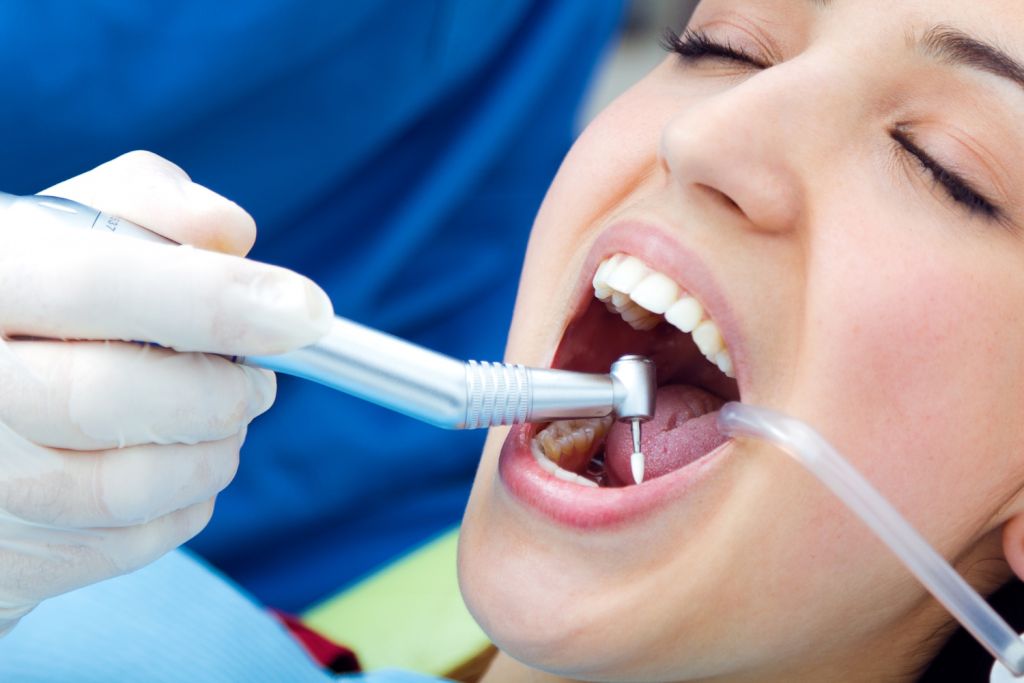 14 Sep 2023
14 Sep 2023
Dental Sealants
Dental sealants are thin, protective coatings that shield the chewing surfaces of your back teeth from harmful, cavity-causing bacteria.
What are dental sealants made of?
- Resins (plant or synthetic)
- Glass ionomers (glass powder combined with a water-soluble acid)

What is the purpose of sealants?
Dentists place sealants to protect your teeth from disease-causing bacteria. Your back teeth have deep grooves that help you grind up food when you chew. Food and bacteria can become trapped in these grooves, leading to tooth decay (cavities) over time. Sealants coat these areas so bacteria can’t reach them.
If a patient has a higher cavity risk in childhood and his adolescence teeth. Should we wait for the caries to develop in pits and then fill them?
The answer is No.
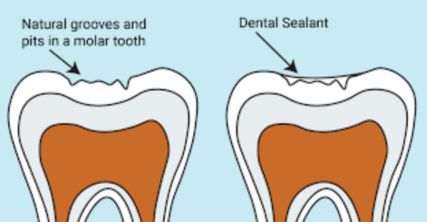
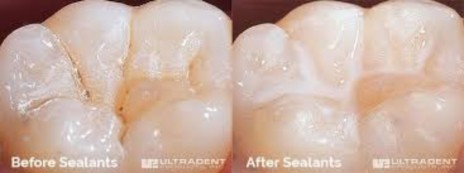
In such cases preventive measure in form of sealants is greatly required. Studies have shown that 80% caries reduction after 1 year after a single application of sealant.
- Sealant mechanically filled on the deep pits with acid resistant
- Since we are sealing the deep pits prior so now they will be no habitat for
- Thirdly, the tooth becomes more carious to
What are the benefits of dental sealants?
While diligent oral hygiene removes plaque, food and debris from your teeth’s smooth surfaces, brushing and flossing can’t always get into all the nooks and crannies. Sealants shield these vulnerable areas from cavities by “sealing out” bacteria, plaque and food particles.
Who needs dental sealants?
Children and teenagers are popular candidates for dental sealants. But adults without decay or dental fillings in their molars can also benefit from this treatment. In general, anyone who’s prone to tooth decay on their back teeth should consider sealants.
What is the recovery time?
There’s no downtime after dental sealant placement. You should be able to go back to work or school immediately.
How long do tooth sealants last?
Sealants last up to five years. For best results, you’ll need to have your sealants replaced on a regular basis.
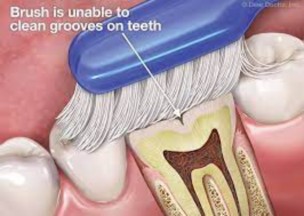
When can I eat or drink?
You can resume normal eating and drinking right after your appointment. However, it’s important to know that extremely hard, sticky or chewy foods can chip or erode your new sealants. It’s best to consume these foods in moderation.
 14 Sep 2023
14 Sep 2023
Know about DENTAL BRACES
- Braces can correct a wide range of dental issues, including crooked, gapped, rotated or crowded teeth.
- There are several types of braces, including traditional metal braces, ceramic braces and clear aligners like Invisalign®.
- Braces improve your smile’s health, function and appearance.
TYPES OF DENTAL BRACES
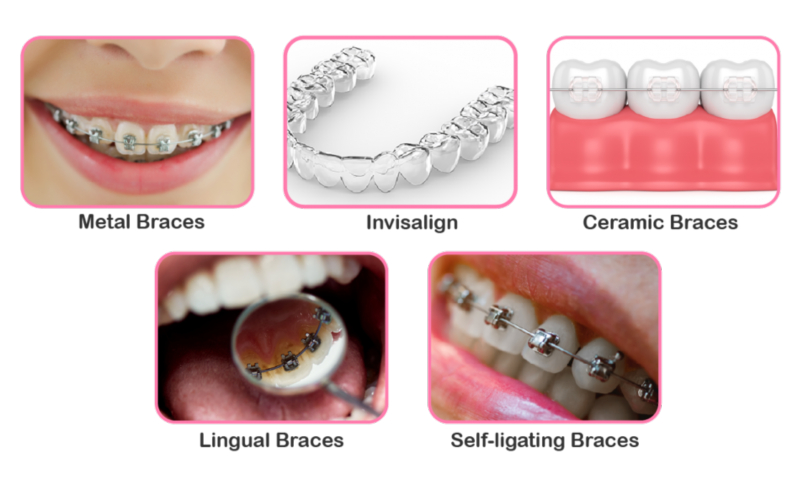
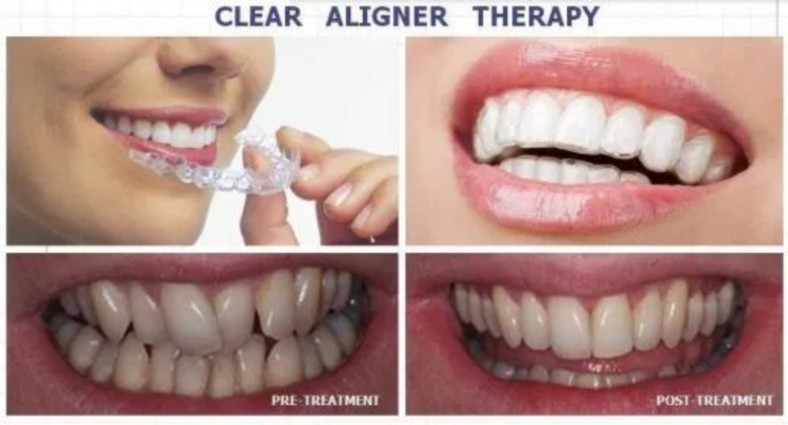
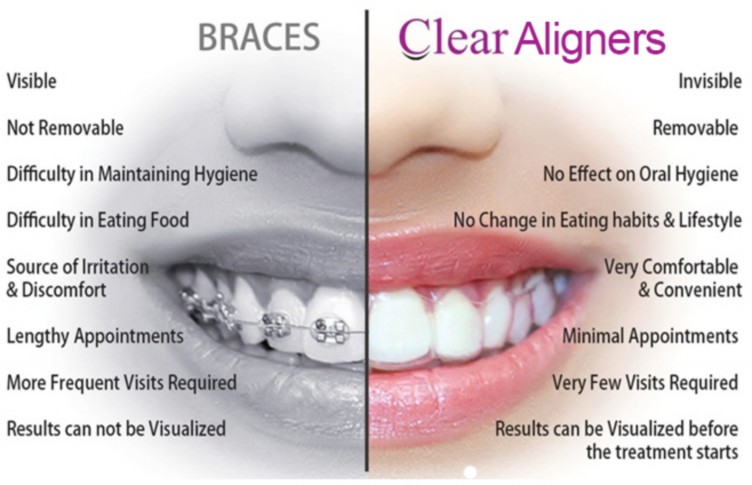
What age is best for braces?
You’re never too old for orthodontics. That said, the best time for braces is generally between the ages of 9 and 14. At this point, your jaws and facial bones are more malleable (flexible) because they’re still developing. Adult braces are just as effective, but it might take a little longer to achieve the desired results
How long do braces take to work?
The answer to this question is different for everyone. On average, braces treatment takes about two years to complete. But it depends on the severity of misalignment. Some people finish treatment in under 12 months. Others may need as long as three years.
What are the benefits of dental braces?
The most obvious advantage of braces is a straighter, more beautiful smile. But braces can also:
- Make your teeth easier to
- Help prevent cavities and gum
- Correct temporomandibular joint (TMJ) disorders.
- Restore proper functions like chewing and
In short, braces can improve the health, function and appearance of your smile
What are the normal side effects of braces?
There are some mild, expected side effects of braces, including:
- Temporary discomfort (which usually occurs the first day and any time your dentist tightens your braces).
- Irritation on your tongue, lips or inner
- Jaw pain.
- Difficulty eating (especially after a tightening).
You can manage most of these side effects with over-the-counter (OTC) pain relievers. You can also purchase dental wax for braces at your local pharmacy to help with irritation inside your mouth. Simply place some wax over any rough- feeling brackets or wire.
